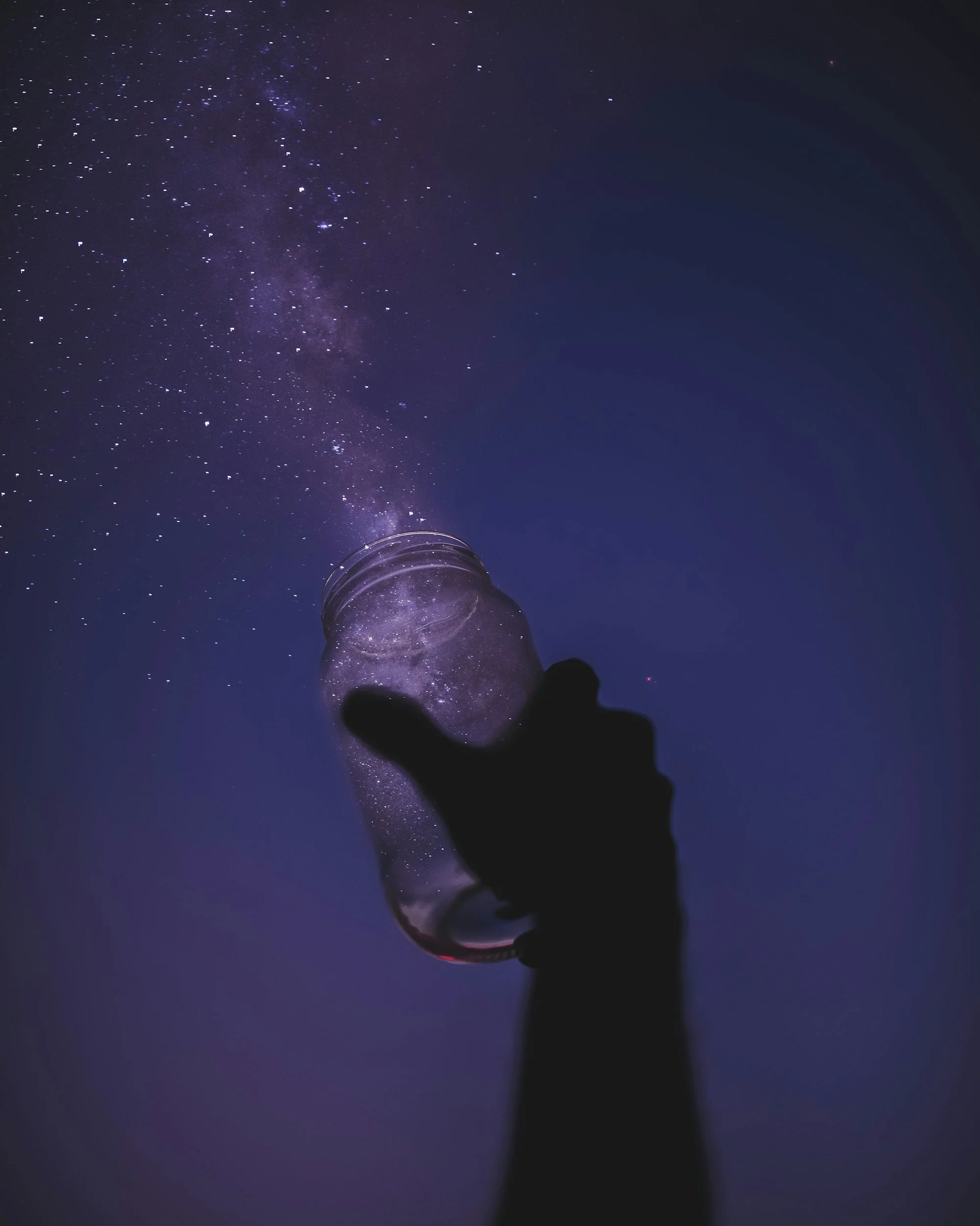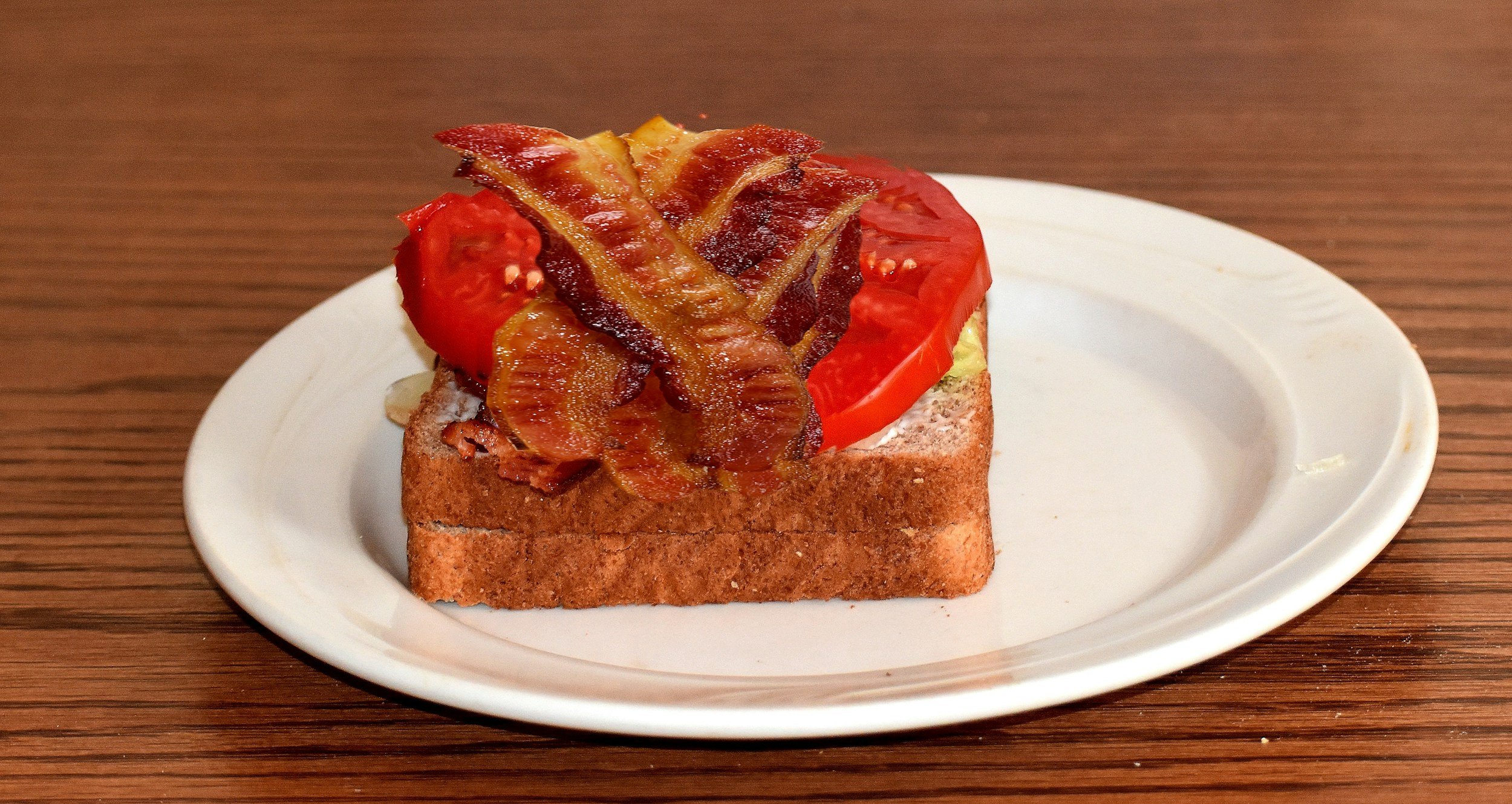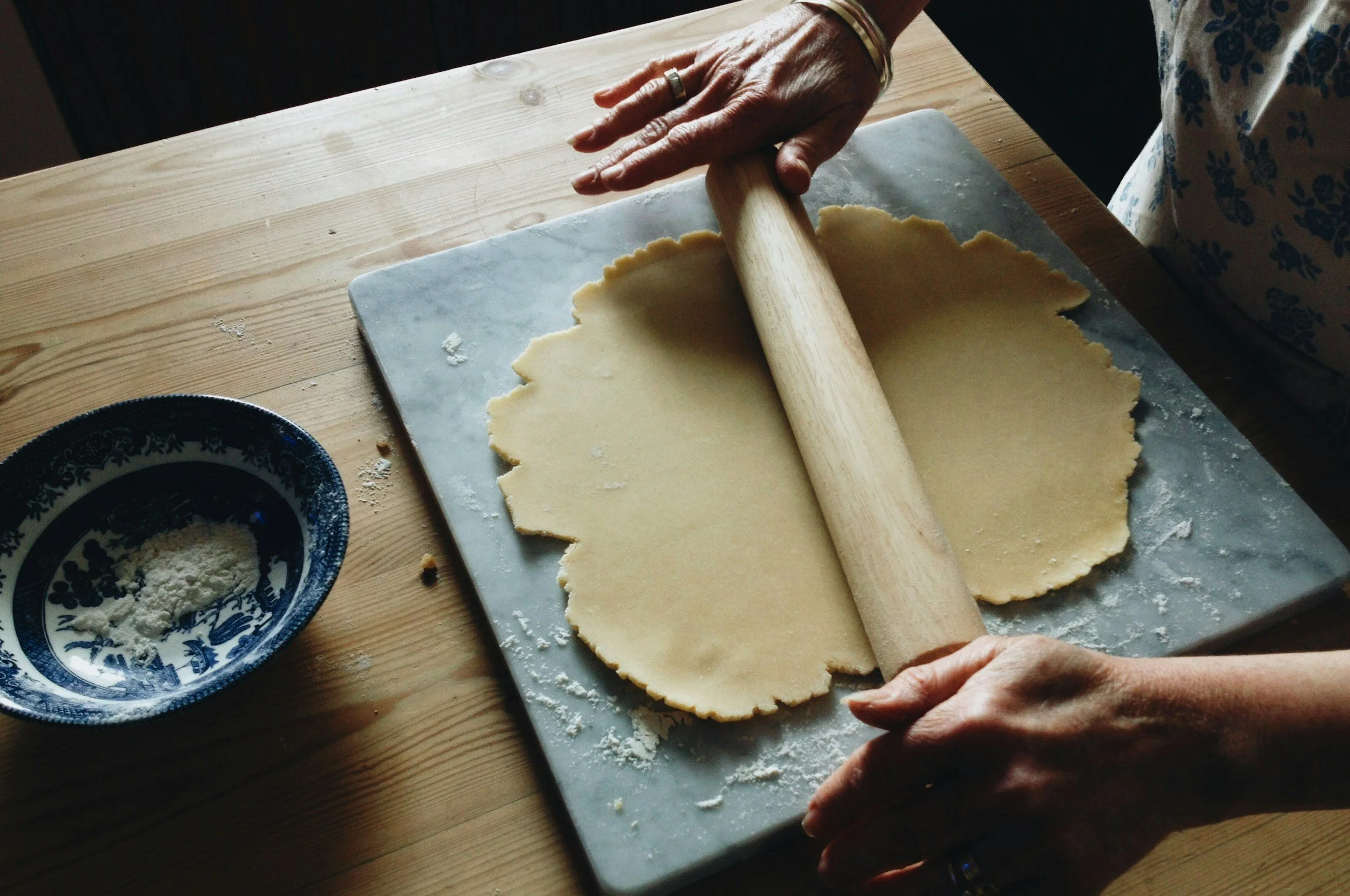Hard to Love
When my ex-husband told me his father was dead, he said it casually. The way you'd mention an alma mater, or that you'd lived abroad for a while.
"My dad died five years ago," he said. We were at work, in a courtroom with no privacy, dressed in our lawyer suits. He reached down to tug up his socks when he said it. I remember searching for significance in how he announced his tragedy while adjusting his outfit. It made me wonder if his father's death was an easy thing to bear. Or if it were so painful he needed to reveal it in the bright bustle of a courtroom, with busied hands. He usually seemed so guarded.
I was in my late twenties, young enough to think myself grown. All of my family was alive and well and I was sure they would be for a very long time. Certain we would all die of old age in warm beds. I can't recall my response. Something kind enough to fool him into believing me a generous, understanding person. I made my ex-husband feel safe but I had a secret knack for cruelty; I was all danger.
We weren't dating at the time but soon after, we would start. Our marriage was a short-lived Armageddon. He numbed his pain with alcohol while I treated mine with pills and weed. We were each too caustic, too full of rage, and too scared to face our addictions.
My daddy was relieved when we split up. He'd prayed for us, because that was his way. He lived a life of quiet devotion to our family and his faith. A small-town dentist, a church deacon, a fly fisherman. A man who loved the majesty of a mountain range. His hands fixing teeth in a patient's mouth, light as butterflies. My daddy was the gentlest man who ever lived. He'd comforted me in the shadowed valley of my marriage. To his mind, divorce was well within God's repertoire of mercy.
Six years later, my daddy was dead.
*
Our fathers were both fifty-nine when death came around. It claimed my ex-husband's father right away, without a shred of warning. He'd had a headache and a fever the doctors deemed nothing as they sent him home to rest. When he died in his sleep that night it was a violent, astonishing horror.
Death worked on my daddy slowly. A few weeks after his fifty-ninth birthday he was diagnosed with a bad cancer and given slim odds to beat it. A few days after that he checked into the hospital for the first of countless stays. A few years of endless chemo, and two bone marrow transplants later he died in a hospice center. When he drew his last breath I was with him. For all the years of anticipation it was still a violent, astonishing horror.
I used to think people who lost beloveds to long illness were better prepared for it, and this made them less sad. My ex-husband's father was ripped from life. My daddy ebbed into death.
What's worse—losing someone all at once, or in pieces over time? Which hearts are more broken? Can you compare suffering? Can you measure a loss?
These are stupid questions.
*
My ex-husband was close with his mother, who we saw all the time. She was an anxious, indecisive woman in cable knit sweaters and an immaculate house. Together, they had a lot of rigid ideas about how people should speak, live, behave. Together, they scorned the world.
There was a photograph of my ex-husband's father they kept all around. One copy on our fridge, one clipped to the visor in the car, one on his mother's mantle, another by her bed. So many little shrines. In the photograph, my ex-husband's father's eyes glint, his mouth is wide, his hand is folded into the sign for "I love you." He is open in the photo, and so very alive.
Six months after my daddy's death, and I can't bear the sight of him. I keep one photo of us together, when I was a toddler, tucked away by my bed. In it we are reading on the couch, our heads touching, glancing up at the camera. I can only behold it for a few minutes before I put it away. I won't scroll my phone's reel far back enough to see the shots of him hiking, or cooking, or fishing in his boat. I won't listen to his voicemails. On the fridge, is a photo I've had taped up for years; of him in the hospital for his first bone marrow transplant. He's wearing a party hat, because when a transplant is successful the date is considered a second birthday. Another shot at life. Ferocity glints in his eyes—the force that kept him living years past all medical predictions. If I look at it too long I'm a mess. I collapse; I cry.
My ex-husband and his mother liked to drink and ruminate. I saw them reach for alcohol to numb their rage. I was outside of their rituals, and felt like a usurper in the intimacy of their loss. Watching my ex-husband tend to his mother's sorrow with a reverence that made me seethe.
It had nothing to do with me, and rightly so. I see that now.
*
My ex-husband let me in on his grief but I could not understand, honor, or hold it. He'd never loved another woman. Before me, there was no one. I loved this about him, about us, and most of all about me. It left me intoxicated by my singularity in this difficult man's life. All I knew how to do back then was make things about myself.
The most vulnerable I ever saw him was a night in the first year of our courtship. We were at his mother's house, again, but she was out of town. There was a box of letters his father sent from his Air Force days in Vietnam.
My ex-husband poured a glass of white wine and sat on the carpet to read them. He opened each letter, passing them to me. They didn't say much of anything—boring, daily stuff about meals and weather. "I've never read these before," he admitted, wiping tears from his face. This confounded me. A whole box of dispatches, from his dearly departed father? Untouched and never read? When he ran out of wine I opened another bottle for him. He read every letter, crying hard, while I rubbed his back. It was the only time I fully endorsed his getting obliterated. It was the only time I ever saw him weep. I felt special, assured that my glorious presence in his life had opened his heart.
I'd been in and out of love before so I gave my heart easily. I didn't value what it took for him to decide to love me. I knew nothing about risk and loss. I knew nothing of true devotion. Real heartache was yet to come for me.
*
When my daddy was diagnosed I went to pieces. I cried on the train to work then I cried in my office. Sometimes I'd visit the bathroom a dozen times a day with stomach pains and vomit. Then I'd come home and fall apart the instant the door shut behind me. Weeping in bed for hours.
He survived for nearly five years. He fought fiercely to live. He cooked, he walked in the woods, he bought a little boat and went fishing. But he withered, and aged, and went frail all the same. During these years, the pandemic hit. I moved from New York city back home, to the lovely south. I quit my job. My life became smaller. My grief only grew.
My ex-husband hasn't reached out to me since our divorce. When my daddy was diagnosed, he sent a card directly to him. After his death, he left respectful condolences under the online obituary.
Years of looming death will trick your mind. I got the idea that when my daddy died, my own will to live would reignite. But now he's gone and I'm just here. Howling at the empty space he left behind. No one tells you the pain is physical. How grief aches and heavies your limbs.
My ex-husband drank to intoxication most nights of our marriage. I smoked weed nightly, even as I hounded him to stop. It's hard to love a drinker. There are daily betrayals. So many nights he promised sobriety but cracked open beers. Slipping off to dive bars while I was home asleep. Sneaking sips while I showered. It made me vigilant and crazed. To love someone who needs alcohol like that is to be abandoned all the time.
The cruelest thing I did to my ex-husband was weaponize his dead father's memory. "I bet he'd be so proud of his alcoholic son!" I'd hiss. I said this more than once. My husband would counter that he suspected his dead father might not like me.
I cannot fathom someone hurling my own grief at me like this now. Shaming me for how I survived it. Invoking my dead daddy against me. Alcohol doesn't work for me. I get sick, and sad, and volatile. If a drink would help me now, I'd have one. I'd have twenty. I'd have them all.
Whatever my ex-husband said back to me in those moments, whatever he did, I deserved it.
*
My own daddy, on his deathbed in the hospice center. The week before the doctors had asked him how and where he wanted to die. "I want whatever is easiest for my family," he decided. In the last days we all surrounded him. We were grateful to be there; we'd waited years for this.
What's easiest on a family? To lose someone slowly, in pieces? Or to lose them all at once?
My ex-husband's father had a favorite red wine. After his death they bought up all the bottles they could find from the year he died. They uncorked them on sacred occasions—births, graduations, anniversaries. When I came into the fold there was one bottle left. After my ex-husband and I got engaged, his mother brought it out.
"What could be more deserving of our last bottle, than this?" she could barely speak between tears.
My ex-husband's family loved me. Our divorce was an undeniable necessity. But I sicken to think about the heartache and loss it caused. They were intensely private, dignified people. My writing about them is another betrayal.
Once during our marriage I went to an Al-Anon meeting, in a rickety old church. All I could do was cry while other people told stories of alcoholic loved ones. I rode the bus home to our warm apartment on a cold New York night and found my ex-husband with his beer. I told him where I'd been. He was incredulous, disgusted. He called me a hypocrite as I sparked up a bowl. We were each so alone.
My ex-husband was a villain in my life for a while, but that's not the truth of who he is. He was more than a drinker, of course. He was a marathon runner, a talented attorney, a dedicated son. A good and wounded person, like most of us. We just weren't built to take on life together. I thought he mistreated me, but he was just trying to survive. He handled his grief in a way I couldn't live with. But that was my problem, not his. He drank to stay alive.
*
When I was a teen, my daddy made me a cross. He forged it from the gold crowns and fillings of patients who abandoned these precious metals after my daddy replaced them with better dentistry. On Christmas he gave me this pendant of tooth gold, which I kept in my jewelry box. When my marriage went to ruin I started wearing it on a long gold chain that dangled to my sternum. I swung it all over New York city, above treacherous subway grates, amongst other dangers. It made me feel precious, and strong.
It's a holy object now. I wore it to his funeral, chain double-looped, secure against my heart. It lives on an altar with his ashes. Too precious to be worn.
Towards the end of our marriage, my ex-husband told me I was hard to love. He declared it simply, in total calm. A vow-breaking kind of statement. It spiked me like a death nail.
It was a mean thing to say, and easy proof in my case against him. Exhibit A of the wild injustice I endured. I thought he was saying something about what I deserved. I thought he was calling me unlovable. Maybe he was. But it sounds a little different to me now. It sounds like he was naming a struggle, an exhaustion in his heart. It was hard for him to love me. Fair enough.
*
My ex-husband was six years older than me. That mostly didn't factor. But sometimes, between the swells in our fights, he would slip into a wearied stillness. It was so different from his perpetual, kinetic state. "You're still young," he would say. "One day you'll understand these things that you get so angry about, they don't really matter."
Of course, this provoked me anew. How dare he invalidate my rage? Downplay my pain? It felt patronizing and dismissive. I'd thunder back all the mean red words that flooded my brain. I'd yell about how wrong he was. We'd do our tiresome combat some more and then we'd get drunk, get high, and retreat into our own miserable corners.
He was right though. No one was ever so young as me, waging war on my ex-husband, all narcissism and wounding. Thinking this sad man's drinking was a crime against my life. He was trying to tell me something true. He was trying to say that life is finite. He was trying to say that love means understanding and family means acceptance. In his way, he was trying to save us.
Our marriage was always doomed. Of that, I am certain. But the brutality was an unnecessary violence. When we married, we vowed to bring our best selves to each other, and to meet each other's pain with love. If I could go back again, I'd like to think I'd offer kindness. I hope I'd offer grace. All I know for certain is I'd understand.
*
These days, we have all been therapized. People think they know what to say. They name the framework of stages—deny, be angry, bargain, feel depressed, accept. "But grief isn't linear," you hear this acknowledged too, ad nauseam. These well-considered ideas aim for understanding, and mean nothing in the face of what's primal. There's no safety in this world when your father dies. There are no stages here. Just tectonic states of being that slam around. Paralysis, terror, anguish, disbelief, desperation. Begging. "Come back," I wail and press my face into the bed. "Come back, just come back."
What they don't tell you is all the griefs come at once. You grieve for the lives not lived, the narrowed paths. The people you treated badly and the harsh words you spoke. They throw themselves at the door of your heart all day until it gives.
Grief as a ceaseless free fall. A yearn for a rocky bottom to break you.
I got to hold my daddy's hand as he left the world. I also had to watch death claim him over half a decade. I had to watch him be scared, stay brave, keep faith. I had to see him wheeled into the hospice room and know he would never leave it. Then I got to speak low in his ear after he lost consciousness. I got to tell him that I found him in this life and that I would find him in the next.
What's better? To count your daddy's numbered breaths, or to wake and learn your father's heart went still in the sudden night?
What's harder? To lose someone slowly, in pieces? Or to lose them all at once?
-Lee Price
Lee Price is an attorney, writer, and somatic therapy practitioner. Her writing has appeared in Huffpost, Slate, The Rumpus, Columbia Journal, The Plentitudes, and Pigeon Pages. She's the winner of Columbia Journal's 2023 Nonfiction Contest, and her other essays have been nominated for Best of the Net, Best American Essay, and a Pushcart Prize. Lee lives in Philadelphia with her husband and blind cat.


























